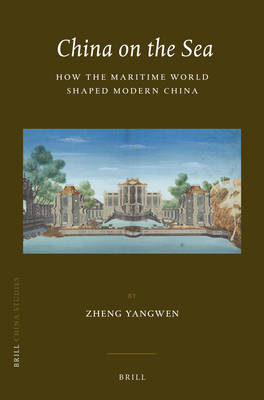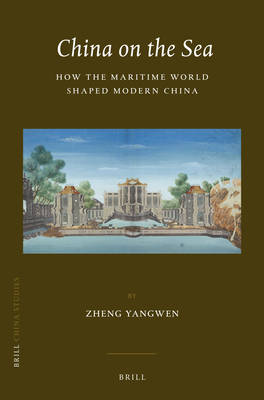
- Afhalen na 1 uur in een winkel met voorraad
- Gratis thuislevering in België vanaf € 30
- Ruim aanbod met 7 miljoen producten
- Afhalen na 1 uur in een winkel met voorraad
- Gratis thuislevering in België vanaf € 30
- Ruim aanbod met 7 miljoen producten
Zoeken
€ 76,45
+ 152 punten
Uitvoering
Omschrijving
Generations of Chinese scholars have made China synonymous with the Great Wall and presented its civilization as fundamentally land-bound. This volume challenges this perspective, demonstrating that China was not a "Walled Kingdom", certainly not since the Yongjia Disturbance in 311. China reached out to the maritime world far more actively than historians have acknowledged, while the seas and what came from the seas--from Islam, fragrances and Jesuits to maize, opium and clocks--significantly changed the course of history, and have been of inestimable importance to China since the Ming. This book integrates the maritime history of China, especially the Qing period, a subject which has hitherto languished on the periphery of scholarly analysis, into the mainstream of current historical narrative. It was the seas that made Tang China a "Cosmopolitan Empire" (Mark Lewis), the Song dynasty China's "Greatest Age" (John Fairbank), China at 1600 "the largest and most sophisticated of all unified realms on earth" (Jonathan Spence), and the reign of the three Qing emperors (Kangxi, Yongzheng and Qianlong) China's "last golden age" (Charles Hucker).
Specificaties
Betrokkenen
- Auteur(s):
- Uitgeverij:
Inhoud
- Aantal bladzijden:
- 372
- Taal:
- Engels
- Reeks:
- Reeksnummer:
- nr. 21
Eigenschappen
- Productcode (EAN):
- 9789004281608
- Verschijningsdatum:
- 14/10/2011
- Uitvoering:
- Paperback
- Formaat:
- Trade paperback (VS)
- Afmetingen:
- 155 mm x 231 mm
- Gewicht:
- 557 g

Alleen bij Standaard Boekhandel
+ 152 punten op je klantenkaart van Standaard Boekhandel
Beoordelingen
We publiceren alleen reviews die voldoen aan de voorwaarden voor reviews. Bekijk onze voorwaarden voor reviews.








